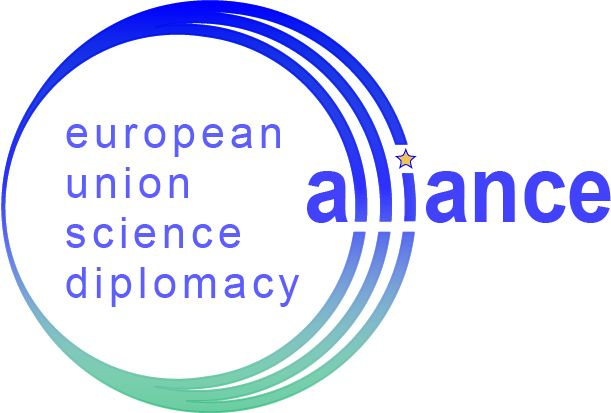Date/Time
Date(s) - 13/07/2022 - 16/07/2022
All Day
Categories
ESOF is the biggest multidisciplinary conference in Europe. Every edition of this conference is unique with different themes and addressing the prevailing issues in science and society.

For ESOF2022, the two Champions, Ferry Breedveld and Corinne L. Hofman have announced the following overarching theme:
Crossing Borders, Engaged Science, Resilient Societies
The scientific topics this theme covers are:
- A sustainable environment (e.g. climate change, human rights, a sustainable way of living, green energy, citizen science, future mobility, future cities, economy)
- Cultural Identities and Societal Transformation (e.g. migration, fortress Europe, missions of museums and collections, contested heritage, art, protest movements)
- Space for science (e.g. search for earth, construction in space and on the moon, finding extra-terrestrial life, dark matter research, quantum computing)
- Healthy societies (e.g. chronic diseases, digital tools, increasing costs, interplay between industrial research and academic research, global inequalities, data protection, artificial intelligence)
- Freedom and societal responsibility of science (e.g. integrity in science advice, dialogue between science and policy, funding in freedom of science, responsible research and innovation, science diplomacy, conflicts of interests)
- Back to Business: the way forward with action-based entrepreneurship education (e.g. entrepreneurial education, research performed in academia and industry, value-driven innovation, innovation out of the humanities)
- Off the beaten track: new paths for Academic Careers (e.g. new career paths, research quality vs. quantity, the role of team science)
Find more information about the Programme for ESOF2022 and registration for the event here: https://www.esof.eu/
Please find below some programme items with direct relevance to science diplomacy.
Thursday, 14 July
08:00-09:15 CEST:
World programme / WP1.1 Meet my Lab focus on Green and Digital Transformation
In this session, you get to meet ASEAN science diplomats and climate scientists, who are also members of the EU-ASEAN Scientific Network initiated by EURAXESS ASEAN, and their work to address sustainability challenges through science diplomacy and cooperative initiatives. Get to know the Environmental and Climate Change Research Institute and their platform that provides elucidations in reducing disaster risks and preventing potential damage and losses through scientific wide-ranging assessment, capacity development, project management and multilateral cooperation among actors. Find ways to engage and collaborate in future projects.
12.45 to 13.45 CEST:
Posters in theme Freedom and Responsibility of Science P31 – P59 and Space for Science P78 – P81 including for example
P46 Science Diplomacy in times of conflict: Mapping Israeli-Palestinian crossborder scientific cooperations
Presenter: Yoran Beldengrün
17:15-18:30 CEST:
SS2.35 Delivering the European Science Diplomacy Agenda
Online room 5
Science diplomacy as a concept has gained a lot of traction in the last decade, with an increasing number of countries developing science diplomacy strategies. In parallel, we have seen the development of a vibrant community of science diplomacy scholars and practitioners in Europe. Following the adoption in May 2021 of the “Global Approach to Research and Innovation”, the European Union’s strategy for international science and technology cooperation, EU Member States have demanded the European Commission and the European External Action Service in September 2021 to develop a “European Science Diplomacy Agenda” to ensure a coherent approach of the EU to science diplomacy. The session will take stock of this process and discuss with the audience the next steps in delivering the Agenda, which is happening against the background of an increasingly competitive, but also volatile and even hostile geopolitical environment. Becoming an integral part of the EU’s diplomatic toolkit, science diplomacy has the power to keep communication channels with non-like-minded countries open, while ensuring that the EU’s foreign and security policies are based on the best possible evidence.
Saturday, 16 July
09:45-11:00 CEST:
SS3.11 Responsible Research and Innovation in the Western Balkans
Online room 2
The European Union strives for value-based leadership in its initiatives related to science diplomacy and research cooperation with non-EU Member States such as the Western Balkan countries. An important element is the discourse about “Responsible Research and Innovation” (RRI), which revolves around key concepts such as ethics, gender equality, openness, science education and public engagement, integrity, transparency, inclusiveness and academic freedom. In this session, the importance of cooperation involving representatives from the government, business and academic sectors as well as civil society is highlighted. The so-called Western Balkans are one of the geographical areas that highly benefit from the spreading of co-creation and responsible research and innovation principles and dimensions in cooperation with the EU. The session explores the current state of play of RRI by highlighting good practices and success stories of the inclusion of the countries and their actors into the EU networks, and the steps the region takes to modernize its research and innovation systems and its economies in line with RRI pillars and dimensions.
11:30-12:45 CEST:
SS3.17 Renewed Call for “Track II” dialogues in Science Diplomacy
Online room 1
Informal diplomacy or “Track II” diplomacy can maintain relationships and communication channels between countries, including countries with severed official diplomatic relations. Even if official diplomatic channels exist, “Track II” dialogues can be valuable for learning the positions and views of other countries and establishing more diverse, expansive, and durable relationships between people in different countries. Additionally, informal diplomacy can support, foster, and lay the groundwork for future “Track I” diplomatic efforts. In recent years, the world has seen numerous changes. There have been significant political changes, which has resulted in a more uncertain official diplomatic environment. Additionally, there has been rapid advances in technologies that could impact economic and political power and require new international standards. These changes call for the increased emphasis on informal or “Track II” diplomacy and for those efforts to involve scientists and scientific organizations. The proposed session will focus on the need for “Track II” diplomatic efforts involving scientific participants, the role for international scientific organizations in those efforts, and the impact of “Track II” dialogues in science diplomacy.

